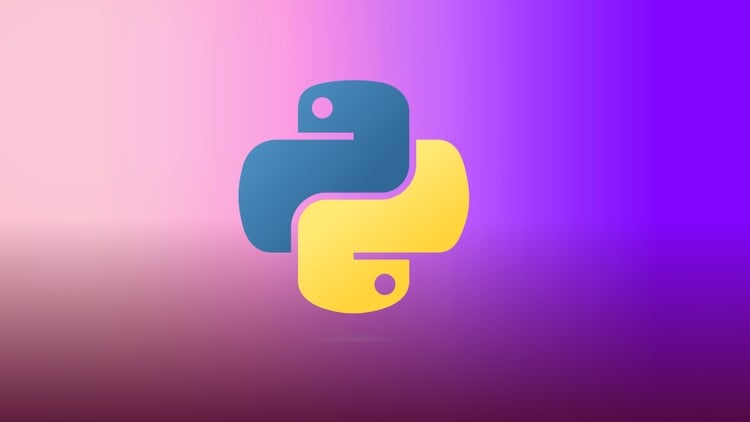
Build 8 Practical Python Tools from Scratch- Master Python Fundamental by Coding 8 Real Tools Used in Everyday Tech Task
⏱️ Length: 5.6 total hours
👥 2,310 students
🔄 September 2025 update
Add-On Information:
Note➛ Make sure your 𝐔𝐝𝐞𝐦𝐲 cart has only this course you're going to enroll it now, Remove all other courses from the 𝐔𝐝𝐞𝐦𝐲 cart before Enrolling!
- Course Overview
- Embark on an immersive, project-driven journey to solidify your Python proficiency by constructing eight distinct, high-impact tools.
- This course is meticulously designed to bridge the gap between foundational Python knowledge and practical application, transforming theoretical understanding into tangible technological solutions.
- You’ll navigate the complete lifecycle of software development, from initial concept and design to debugging and deployment, all within the context of building real-world utilities.
- The curriculum emphasizes a hands-on approach, ensuring that every concept is reinforced through immediate coding and problem-solving, leading to deep comprehension.
- Gain the confidence to tackle diverse programming challenges by demystifying the process of creating functional software that addresses everyday technological needs.
- Leverage the power of Python’s extensive libraries to enhance the functionality and efficiency of your self-built tools.
- This intensive 5.6-hour program is updated in September 2025 to reflect current industry trends and best practices, making it a timely investment in your skill set.
- Join a community of over 2,310 students already benefiting from this practical, project-based learning experience.
- Requirements / Prerequisites
- A foundational understanding of basic programming logic is recommended, though not strictly mandatory, as the course will introduce core concepts through practice.
- Access to a computer with Python 3 installed is essential for hands-on coding exercises and project development.
- A willingness to engage with coding challenges, experiment with different approaches, and learn from errors is paramount.
- Familiarity with using a code editor or Integrated Development Environment (IDE) will enhance the learning experience, though basic guidance will be provided.
- An inquisitive mind and a desire to build practical software solutions are the most crucial prerequisites.
- Skills Covered / Tools Used
- Project Planning & Architecture: Learn to break down complex ideas into manageable coding tasks and architect robust solutions.
- Core Python Syntax & Semantics: Develop a nuanced understanding of Python’s building blocks through direct application in tool creation.
- Data Structures & Algorithms in Practice: Apply lists, dictionaries, sets, and tuples effectively to solve real-world data manipulation problems.
- Control Flow Mastery: Utilize conditional statements and loops to build dynamic and responsive applications.
- Modular Programming with Functions: Design and implement reusable code blocks for enhanced efficiency and maintainability.
- Error Handling & Exception Management: Learn to anticipate and gracefully manage errors, making your tools more resilient.
- File Input/Output Operations: Master reading from and writing to files to create tools that interact with persistent data.
- API Integration Basics: Explore how to connect your tools to external services to expand their capabilities (specific APIs will vary by project).
- Command-Line Interface (CLI) Development: Build user-friendly tools that can be interacted with directly from the terminal.
- Debugging Strategies: Develop systematic approaches to identify and resolve coding issues efficiently.
- Code Documentation & Readability: Understand the importance of writing clear, commented, and maintainable code.
- Utilized Python Libraries (examples may include): os, sys, re, requests, json, csv (specific libraries will depend on the tools built).
- Benefits / Outcomes
- Become proficient in developing practical, functional software applications that can be used in everyday scenarios.
- Gain the confidence to approach and solve a wide range of programming challenges by building a portfolio of eight distinct projects.
- Develop an intuitive understanding of how Python is applied in various technological domains through hands-on creation.
- Enhance your resume with concrete projects that demonstrate your Python skills to potential employers.
- Cultivate a problem-solving mindset that extends beyond coding to general analytical thinking.
- Acquire the ability to quickly adapt and learn new Python libraries and frameworks by having built foundational tools.
- Develop a deeper appreciation for clean code principles and efficient programming practices.
- Transform abstract Python concepts into concrete, impactful tools that solve tangible problems.
- PROS
- Intensive Project Focus: Eight distinct projects provide ample opportunity for practical skill development.
- Real-World Relevance: Tools are designed to address common tech tasks, making learning directly applicable.
- Comprehensive Skill Building: Covers foundational concepts through to practical application and problem-solving.
- Updated Content: A recent update ensures relevance to current Python practices.
- Large Student Community: Benefits from a significant number of students for potential peer support and shared learning experiences.
- CONS
- Pacing for Beginners: While projects are central, absolute beginners might find the rapid pace of building eight tools challenging without additional foundational resources.
Learning Tracks: English,Development,Programming Languages
Found It Free? Share It Fast!